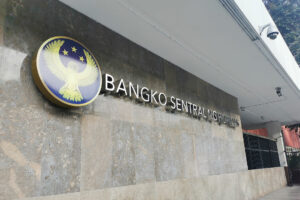Being praiseworthy

Rare is the policymaker, much less a politician, who would defy popular prejudice and resist powerful vested interests. The very nature of politics compels the typical Filipino politician and policymaker to court the support of voters and, at the same time, be in the good graces of the elite for election financing.
Long ago, we had statesmen-politicians whose primary concern was the public good or national interest even if their actions could be politically costly to their being elected. Think of the late Senators Claro M. Recto, Jose W. Diokno, Jovito Salonga, and Aquilino Pimentel, Jr.
Some got entangled with traditional politics, but this did not diminish their stature as champions of worthy but difficult causes (like the termination of the US military bases agreement).
In recent years, we saw the emergence of cabinet secretaries who adopted broad, expansive development agenda, and boldly asserted the reforms despite the political troubles they brought. I cite Butch Abad, the Budget Secretary during the administration of Benigno Aquino III, and Sonny Dominguez, the Finance Secretary during the Rodrigo Duterte administration.
Mr. Abad, who was also a former congressman, did not limit himself to doing reforms related to government expenditures and budget management. He was instrumental in other substantial reforms including the historic Sin Tax Reform Law and the Reproductive Health Law. He tried to reform the pork barrel. But the public, the media, and the Supreme Court did not grasp the complexity and nuances of the issue, and severely but wrongly criticized Abad.
Mr. Dominguez, with able support from Undersecretary Karl Chua and his team, was successful in passing of a series of hard tax reforms. These included the unpopular fuel tax (actually, a good progressive tax based on the over-all design), the further increase in sin taxes, the removal of unnecessary value-added tax exemptions, and the rationalization of fiscal incentives, which some powerful business interests resisted. Further, he did not limit his pursuit of reforms within the strict confines of the Department of Finance. He was decisive in the passage of the Rice Tariffication Act and laws that have eased the entry of foreign direct investments in critical sectors.
In a word, the economic reforms that Messrs. Abad and Dominguez, with the backing of their respective principals, shepherded have been transformative. Philippine economic history will affirm these reforms of signal importance.
Legislators are a different breed. The motivation to get re-elected makes politicians in Congress vulnerable to both populist pressure and private lobby pressure. Thus, the main tendency of most politicians is to avoid sponsoring the hard reforms. Yet, we can name a few brave souls.
Representative Isidro Ungab (current Deputy Speaker) should be cited for his gallantry and strategic acumen in securing the passage of Aquino’s sin tax reform in Congress despite the mighty industry lobby. Another legislator who has consistently fought for health taxes and regulation of harmful products is Senator Pia Cayetano. Sometimes, she fought lonely battles and lost, but she carries on.
And there’s Representative Joey Salceda who is also credited for championing past and present economic reforms. Mr. Salceda has the unique quality of being heard by any political administration. He was a firm supporter of Leni Robredo in the 2022 election campaign. Yet the coalition of President Ferdinand Marcos, Jr. awarded him the chairmanship of the Lower House’s Ways and Means Committee.
This is an acknowledgement of his economic and technocratic expertise and his political skills. He certainly knows how to play the game of traditional politics and compromise even as he advances a reformist agenda.
We need a Joey Salceda in the current context where policy on key issues is unpredictable and wavering. The example is how the Marcos Jr. administration has handled food shortages, resulting in unacceptably high inflation.
One challenge confronting the administration is preserving, if not broadening, the fiscal space We cannot be complacent despite the gains from previous reforms. The fact is that the large deficit incurred during the height of the pandemic must be significantly reduced. But at the same time, government must keep a high level of spending for infrastructure, for pandemic and climate change resiliency, and for protection from global shocks.
Simply put, government needs to boost revenues at present. Finance Secretary Ben Diokno would like to focus on tax administration. But tax administration as envisioned by Diokno is insufficient to significantly increase tax effort, and its benefit is for the longer term. Further, underlying institutional reasons obstruct tax administration measures like digitization and audit.
By focusing on tax administration, Mr. Diokno has set aside some of the main recommendations to further increase smart, efficient taxes in the fiscal consolidation program that Dominguez’s Department of Finance crafted.
The Executive thus will be reactive in addressing the financial challenges. This is where the leadership and activism in Congress will play a role. Let Congress take the lead, and Salceda, being Chair of the Ways and Means, is up to the task.
After all, even President Ferdinand Marcos, Jr. will seriously listen to him. Recall that the President endorsed the proposal of Salceda for a tax on luxurious consumption.
Let’s cite a recent speech delivered by Salceda for a forum organized by the Philippine Legislators’ Committee on Population and Development. I quote a portion of that speech:
“In other words, if we want to crisis-proof the Medium-Term Fiscal Framework’s assumption of an annual 0.3 percentage point increase in tax effort, we need tax policy reforms, especially on the health front.
xxx
“We are lawmakers, in charge not just of tax policy, but of the entire common good. That is our sworn constitutional duty. As such our modelling must account for the entire public welfare.
“If for example, a tax causes a significant drop in consumption resulting in low or negative incremental revenues, that should still be good news overall, even when that is bad news from a purely revenue standpoint. That will likely be the case for high-enough taxes on beer, and to some extent on lower-priced tobacco.
“But our measure of the total public welfare should be wholistic and accurate. How, for example, do we measure the effect of lower sin product consumption on productivity, on health expenditures, and on improvements in quality of life?”
Salceda provokes. Probably, the Finance Secretary, many conventional economists (especially finance economists), the owners of industries, and fellow legislators will challenge his view. Yet, there is no denying that he has an all-encompassing view of development.
Salceda is perhaps guided by the prayer of St. Ignatius: “To give and not to count the cost…. To give of myself and not ask for a reward.” (Salceda is a product of the Jesuits, and so are Abad and Dominguez.)
Yet, this is not just about Jesuit influence. Economics itself is anchored on moral sentiments. It is appropriate to quote Adam Smith. In The Theory of Moral Sentiments (Part III, Chapter II), Smith discussed the relationship as well as the distinction between praise and praise-worthiness. For Smith, the focus is not on receiving praise but on being praiseworthy. Such virtue is accomplished through impartiality and reason.
Smith wrote: “The love of praise-worthiness is by no means derived altogether from the love of praise. Those two principles, though they resemble one another, though they are connected, and often blended with one another, are yet, in many respects, distinct and independent of one another.”
Moreover: “But this desire of the approbation, and this aversion to the disapprobation of his brethren, would not alone have rendered him fit for that society for which he was made. Nature, accordingly, has endowed him not only with a desire of being approved of but with a desire of being what ought to be approved of, or of being what he himself approves of in other men. The first desire could only have made him wish to appear to be fit for society. The second was necessary in order to render him anxious to be really fit. The first could only have prompted him to the affectation of virtue, and to the concealment of vice. The second was necessary in order to inspire him with the real love of virtue, and with the real abhorrence of vice. In every well-formed mind this second desire seems to be the strongest of the two.”
To conclude, Salceda’s statement above won’t earn praise from his profession. But it is something that is praiseworthy. For that praise-worthiness, Salceda deserves our praise. n




